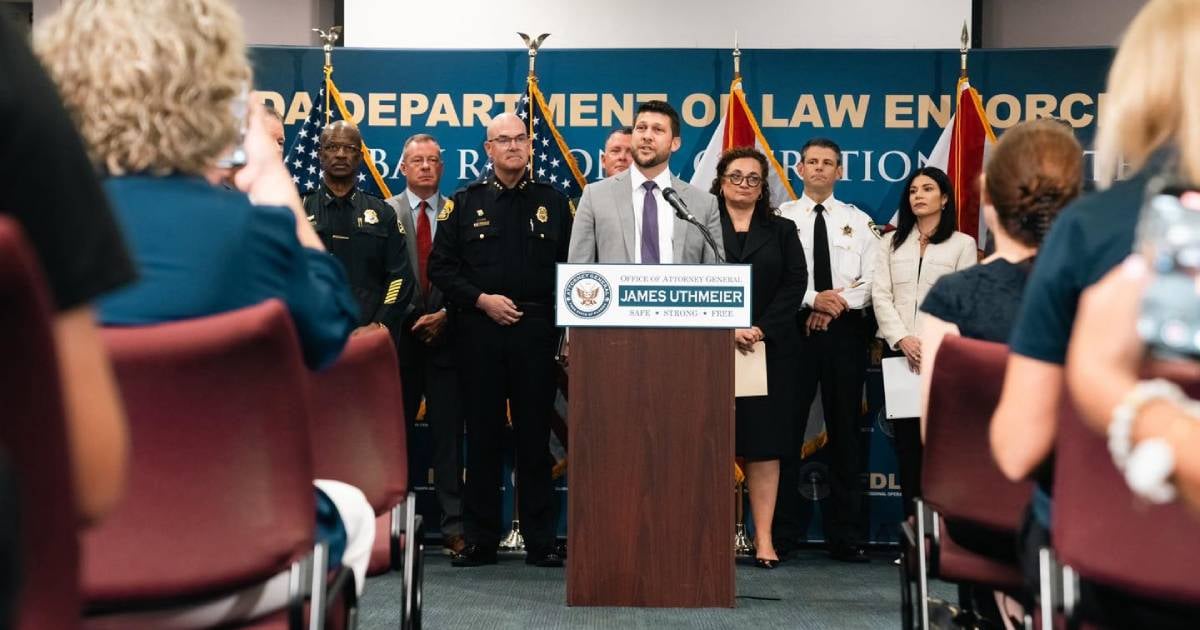Florida's Attorney General, James Uthmeier, intensified his efforts on Monday by urging the U.S. Supreme Court to immediately restore the state law S.B. 4-C. This legislation criminalizes the presence of individuals in Florida who entered the country unlawfully. Uthmeier took to social media to defend the constitutionality of the measure and criticized the Biden administration for what he termed as "lawless" immigration policies over the past four years.
"Florida has the right and responsibility to defend its sovereignty and its people from the impacts of illegal immigration," Uthmeier stated on X. "We must prepare Florida for a potential future administration as lawless as the one we've experienced recently."
Heightened Concerns Amid Legal Battles
The controversial law, currently halted by a judicial order, faces opposition from organizations assisting migrant communities and undocumented individuals residing in Florida. If enacted, it would empower law enforcement to arrest those who entered the U.S. illegally and later moved to Florida, directly affecting thousands of newly arrived or transiting Cubans.
The Attorney General's rhetoric, linking the law's enforcement to a possible return of more lenient immigration policies, exacerbates an atmosphere of uncertainty and fear among migrant communities. Florida remains a primary destination for Cubans seeking refuge, stability, or family reunification in the United States.
Judicial Showdown and Uthmeier's Defiance
Although the law is currently suspended by federal judge Kathleen Williams, Uthmeier is adamant that the Supreme Court should allow its immediate enactment, akin to a similar law in Texas. Should the Court approve Florida's statute, it may lead to a surge of arrests, trials, and deportations for individuals with ongoing immigration processes or asylum applications, potentially being criminalized by state authorities.
Earlier this month, Judge Williams held Uthmeier in civil contempt for defying a court order that temporarily halted the law's implementation. She ruled that Uthmeier misled law enforcement by falsely claiming there was no judicial order preventing enforcement of the law.
As a corrective measure, the judge mandated Uthmeier to submit biweekly reports detailing any arrests, detentions, or other police activities under the suspended law. This oversight will continue as long as the legal proceedings persist. Williams also rejected Uthmeier's request to stay the order during the appeal process, indicating the law might be deemed unconstitutional.
Future Implications and Controversial Proposals
This case has emerged as a new point of contention between Florida's administration, the federal judiciary, and migrant rights groups, many of whom represent Latino and Caribbean communities. Further inflaming tensions, the Attorney General proposed constructing what he dubbed the "Alcatraz of Alligators"—potentially the largest immigrant detention center in the state within the Everglades.
The facility would be located at the old, "virtually abandoned" Collier Training Center, an airport infrastructure spanning 39 square miles with a 10,500-foot runway.
Impact of Florida's Immigration Law
What is Florida's S.B. 4-C law?
S.B. 4-C is a Florida state law that criminalizes the presence of undocumented immigrants who entered the U.S. illegally and are found within the state.
Why is the law currently blocked?
The law has been blocked due to a judicial order, as it is being contested by organizations that support migrant communities, arguing its unconstitutional nature.
What could happen if the law is reinstated?
Reinstating the law could lead to increased arrests, legal actions, and deportations of undocumented immigrants in Florida, impacting those with pending immigration cases or asylum requests.
